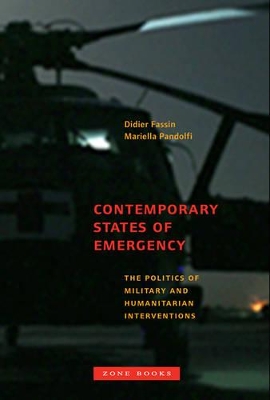The new form of "humanitarian government" emerging from natural disasters and military occupations that reduces people to mere lives to be rescued.
From natural disaster areas to zones of political conflict around the world, a new logic of intervention combines military action and humanitarian aid, conflates moral imperatives and political arguments, and confuses the concepts of legitimacy and legality. The mandate to protect human lives-however and wherever endangered-has given rise to a new form of humanitarian government that moves from one crisis to the next, applying the same battery of technical expertise (from military logistics to epidemiological risk management to the latest social scientific tools for "good governance") and reducing people with particular histories and hopes to mere lives to be rescued. This book explores these contemporary states of emergency. Drawing on the critical insights of anthropologists, legal scholars, political scientists, and practitioners from the field.
Contemporary States of Emergency examines historical antecedents as well as the moral, juridical, ideological, and economic conditions that have made military and humanitarian interventions common today. It addresses the practical process of intervention in global situations on five continents, describing both differences and similarities, and examines the moral and political consequences of these generalized states of emergency and the new form of government associated with them.
- ISBN10 1935408011
- ISBN13 9781935408017
- Publish Date 8 February 2013 (first published 14 May 2010)
- Publish Status Active
- Publish Country US
- Imprint Zone Books
- Format Paperback (US Trade)
- Pages 408
- Language English
- URL http://mitpress.mit.edu/9781935408017
